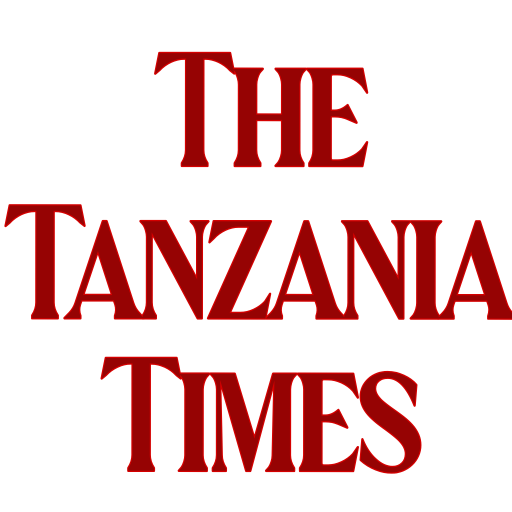Tanzanians can now apply for UK visas from newly opened VFS Global Offices in Dar-es-Salaam or their Smartphones
VFS Global the Visa and passport administration outsourcing company for governments is expanding the United Kingdom visa services in Tanzania and 14 other Sub-Saharan African countries in the firm’s second phase of rollouts
Recently VFS Global was awarded the new contract to provide UK visa services in 142 countries worldwide.
In Tanzania, Visa applications can be done on the First Floor in the Right Wing of the Nature Building, along Toure Drive in Masaki section of Dar-es-salaam City.
Now VFS Global has announced that Tanzanian residents as well as people in Uganda, Rwanda, Angola, Botswana, Cameroon, Ethiopia and Malawi who want to travel to the United Kingdom can submit their visa applications through VFS Global’s new state-of-the-art Visa Application Centres being set up in the countries.
The same service is available in Mozambique, Namibia, Senegal, Sierra Leone, Tanzania, Zambia, and Zimbabwe, effective from the 19th of November 2024 onwards.
Customers applying for a UK visa will be directed to VFS Global to book an appointment to complete their visa application. Customers will also have the option to choose additional services designed to make the application process easier.
VFS Global has been contracted by UK Visas and Immigration since 2003, offering visa services in 58 countries prior to the new contract.
In 2023, VFS Global was awarded the new contract to provide UK visa services in 142 countries worldwide.
“We are excited to embark on this new journey with UK Visas and Immigration here across Sub-Saharan Africa,” Head of VFS Global in Sub-Saharan Africa, Alok Singhal, stated.
“We have enjoyed a long-standing partnership with UKVI since 2003 and look forward to now bringing travellers from Angola, Botswana, Cameroon, Ethiopia, Malawi, Mozambique, Namibia, Rwanda, Senegal, Sierra Leone, Tanzania, Uganda, Zambia, and Zimbabwe, our best-in-class services.”
UK visa customers can now choose from a range of optional services, depending on their location, offered by VFS Global to provide enhanced comfort and convenience.
These include document upload assistance, Prime Time for application submission outside of business hours, SMS notifications, document checking service, and courier return of the passport once a decision has been made.
VFS Global’s Keep My Passport While Applying service allows customers in all these locations to keep their passport once their application is submitted and biometrics have been enrolled. Customers will only need to re-submit their passport if a visa is issued.
Customers in Cameroon, Tanzania, and Uganda can also submit their UK visa applications from the comfort and safety of their home, office, or any other preferred location with through Mobile Visa service.
In addition, our Premium Lounge service offers a personalised submission experience with dedicated staff members, which is available in Ethiopia, Senegal, Sierra Leone, Tanzania, Uganda, and Zimbabwe.
The services can be booked in advance on www.VFSGlobal.com or at the Visa Application Centre at the time of the appointment. These services are completely optional and have no bearing on the processing timeline and outcomes of visa applications.
In the African region, VFS Global will provide Visa Application Centres for the UK in 31 countries. Under the new contract, VFS Global is already operating UK Visa Application Centres in nine other countries across Sub Saharan Africa since October 2024, including South Africa, Kenya, and Ghana.
UK Visa Application Centres in Africa
Angola:
Rua 28 de Maio, Edificio Kende nº15 /17, 1st floor F, Maianga, Luanda
Botswana:
Game City Mall, 1st floor, Unit U101, A1 Lobatse Road, Kgale Hill, Gaborone
Cameroon:
4th Floor, Immeuble Ekang, Opp Palais Des Sports, Warda, Yaounde,
Ethiopia:
6th Floor, NIB International Bank HQ, Ras Abebe Aregay Street, City Centre, Addis Ababa
Malawi:
La Piazza Mall, Shop 7, Plot Number 4/068-069 in Lilongwe
Mozambique:
Maputo Shopping Centre, 6th Floor, 604 Maputo
Namibia:
Hilltop Village, Section 27, corners of Grove and Ombika Street, Kleine Kuppe, Windhoek
Rwanda:
5th Floor -KN 4 Avenue, 63 Street, Cogebanque Building, Kigali
Senegal:
Immeuble Atryum-Center, 1st Floor, KM 8 Route de Ouakam, Dakar
Sierra Leone:
Flat 7, floor 3 Aberdeen complex Building, 58, Sir Samuel Lewis Road
Tanzania:
1st Floor, Right wing, Nature Building, Toure Drive, Masaki, Dar Es Salaam
Uganda:
Plot No. 42, Wing C, 2nd Floor, Lugogo House, Lugogo Bypass, Kampala
Zambia:
Zep-Re Building, Alick Nkhata Road No. 54, Plot No. 356184, Lusaka
Zimbabwe:
Sam’s Levy Village, Suites S and T, Sam Levy’s Village, Borrowdale



